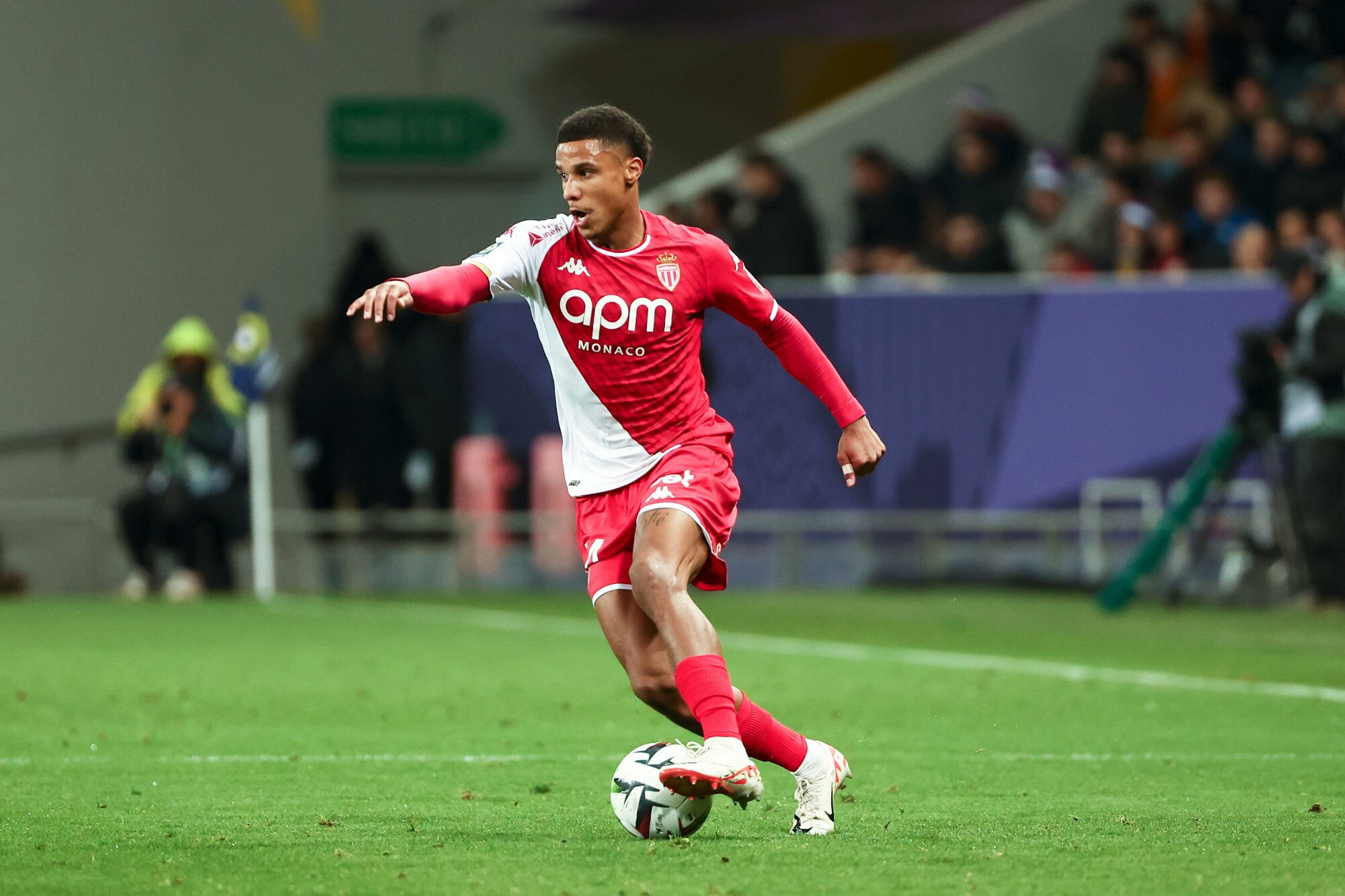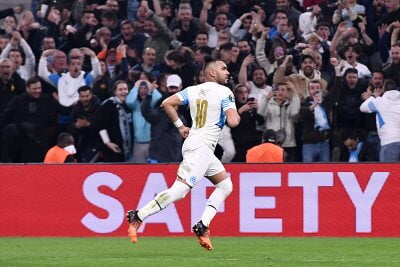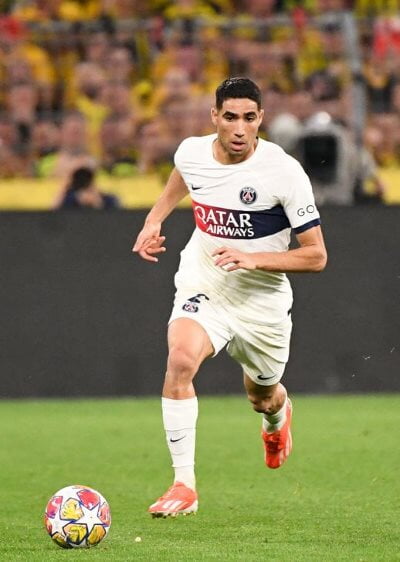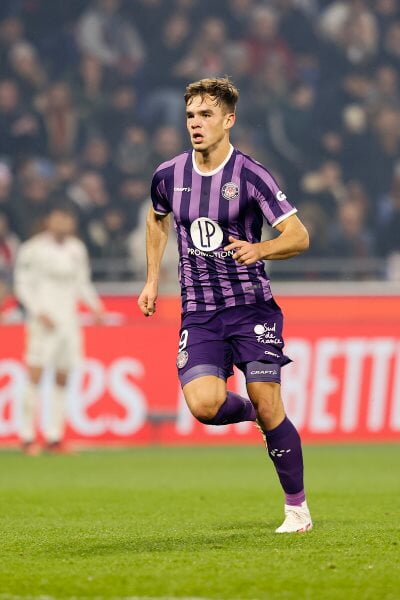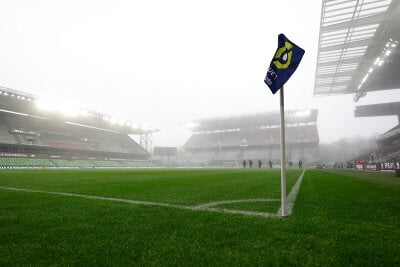We sat down with the AS Monaco and Senegal player to discuss his season to date and the goals he and his team are setting for themselves.
Every coach has their own ideas, their own expectations of the way they want to play. I think this season has been a little bit different — it’s a little special the way that we play. We build play with three at the back, with wingbacks, playing a high press. It’s different from the way we played before under Philippe Clement or Niko Kovac. It’s definitely a big change, tactically, but the principles of the team — to play with an attacking style, to dominate play, to press, to impose our game.
In a league that’s considered to be very physical, like Ligue 1, how do you feel your style of play as an individual matches with the league?
I think that there are a lot physically strong players in the league, and I think that can make it difficult to play. I feel like I fit in well in the league, because of my pace, because of my physicality. That said, I don’t feel that this is something unique in the league — it’s really common. We have a lot of African players, a lot of players with these sorts of qualities.
AS Monaco are now third in Ligue 1, where do you see the team finishing? Is the Champions League the goal?
Our first goal is to reach the Champions League, to be back in Europe. If we can reach higher, we will see game by game, but for the moment I think everything is really tight in the table, so we have to be focused in every game. When you drop points, you can be fifth again, so we really need to be focused and hold on to this third place, because this is a Champions League place, and it’s what we want to reach.
You and Adi Hutter both have backgrounds in German football, as well as several other players on the team. Do you see a difference in approach — a common language — compared to how Philippe Clement worked with the team?
Well, Niko Kovac also has a German background, the manager who brought me here. I think definitely it makes more of a connection when you’re speaking the same language. In terms of communication, my English is good, so I had no problem speaking with the other coaches as well.
The coach has shown a willingness to change systems based on who is available — can you talk about that, and do you feel more comfortable in one system or another?
I feel more comfortable playing as a wingback or a left back, not playing as a winger, but as long as I’m on the pitch I’m happy. I think every game is different — sometimes it’s easier to play with four or five depending on the situation. I think that the way we played — with wingbacks and pressing — teams knew what we were about and so it’s good to keep the other teams guessing. They don’t know if we’re going to play with four or three at the back, so we are more unpredictable. We have the quality to play in both systems, so why not?
There are players from many countries in the AS Monaco dressing room — can you talk about how people get along, and how that can help the team especially in welcoming new players?
For myself, I’ve been here two-and-a-half years, and at the beginning, my French was zero, or almost zero, and now it’s much better. I can speak, I can communicate, even if it’s not as good as I would like. So because of this, it’s easier for me to be closer to the French players, especially the younger players who don’t really speak English. We have a young team, and it’s a nice group — it’s not hard for new players to adapt to the team.
You've just taken part in the Africa Cup of Nations for the first time, but unfortunately Senegal was eliminated earlier than expected. How did you experience this disappointment?
I think for me, it’s done. It was definitely really hard to accept, but I feel like I don’t really have time to dwell on it — I came back to Monaco straight away to get back to business. It was a really frustrating time to be honest, but I feel like we got a lot of love and appreciation from our fans and the press — everyone is standing behind us and not being negative. I have seen this with other teams like Ghana who have had a negative reaction from the press and the fans, so I feel like the country is behind us and believes in us still. We believe in ourselves as well — of course we are frustrated at being eliminated earlier than we expected, but yeah we are ready to focus on the next one.
In your opinion, what can explain the team’s play against Côte d'Ivoire?
I don’t really want to talk about the penalty decision any more, but I also I think it’s something that’s in the past — you can’t change it if it’s a mistake. I think this is football — when you are in a finals, it’s down to one game and in Africa, there are no easy games. We played well in the group stage, for example, but these games weren’t easy either. When you reach the Round of 16, it’s even more true — there are no easy games. It’s only one match, and maybe we were also a little unlucky in this case to draw Côte d’Ivoire, even if they’d had a poor group stage. They changed the coach, they approached this match with a different mentality. They had come back from death, basically, so they had nothing to lose this is football.
Can you talk as well about the system Aliou Cissé uses and how it connects to the way you play at AS Monaco?
I think for me and Krépin (Diatta), it’s true — we both play as wingbacks for Senegal and for AS Monaco. We have been called up by Senegal and the coach wanted to try this system as well, using the two of us, and I think it’s worked pretty well. The system is similar yes, but maybe for Senegal it’s a little bit more defensive than the way we play here but the principles are similar and players are comfortable with the playing style.
How has it been easy for you to link with Sadio Mané on the left flank?
Right away, we had a good connection — he’s a really nice guy. He’s an open person who is friendly to everyone. We play on the same side of the pitch, so we talk more with each other. He’s also someone who links with the left back a lot in the way that he plays — it’s something I really appreciate about him. It’s also something that is always getting better, and I really enjoy playing with him.
How do you explain your very quick adaptation to the Senegalese national team? Indeed, as soon as you arrived you were called up to play for the World Cup in Qatar. How do you feel now that you have been with the team for a little bit of time?
Like I said, it’s been easy to adapt — everyone is really friendly, and has welcomed me well. But now after this period of time, we’ve been together, winning games together, spending a lot of time together, it becomes a different connection, and now I feel more comfortable than when I started. I’ve always felt welcomed, I’ve always felt appreciated. I always feel blessed when I play for Senegal and I’m always happy to play.
Have your performances with the national team at the Africa Cup of Nations changed the way people look at you at club level?
Definitely — especially before the World Cup, when I wasn’t playing a lot at Monaco. I joined the national team, and I played well, and people said ‘OK this guy is good — he can play.’ I think it definitely gave my career a boost, and this decision to play for Senegal has been one of the best of my career.

